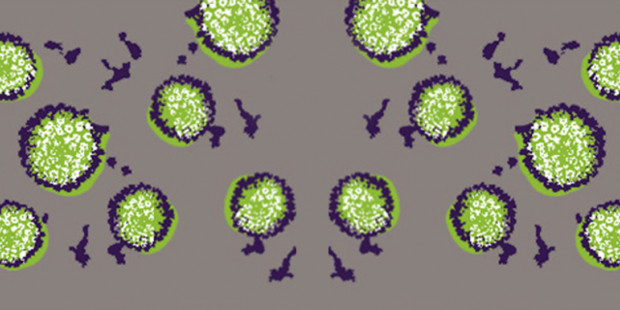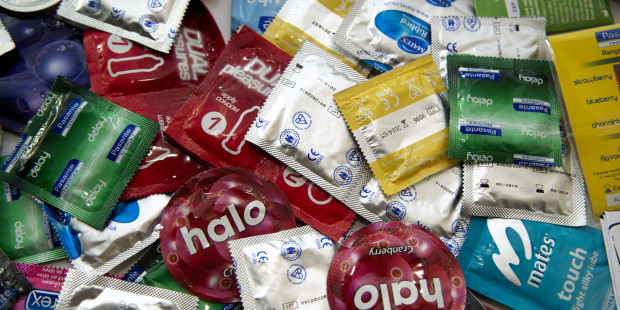Syphilis is caused by bacteria. It's an infection that spreads easily through anal, vaginal and oral sex and can seriously damage your heart, brain and nervous system. It's easy to treat and cure with antibiotics.
Syphilis symptoms
Syphilis has three stages, each with its own different symptoms:
First stage (primary syphilis)
- Ten days to three months after you become infected a painless sore (called a ‘chancre’) may appear where the infection is. This is usually on the penis or vagina, in the mouth or around the rectum. Some people get several sores.
- Glands in your neck, groin or armpits may swell.
- The sores are very infectious. They heal after about two to eight weeks and disappear.
If it isn’t treated, it may go into the 2nd stage.
Second stage (secondary syphilis)
A few weeks after the sore disappears you may get:
- a blotchy rash on your body, often on the palms of your hands or soles of your feet
- patchy hair loss
- white patches in your mouth
- growths like genital warts appearing near the anus and also near the vulva.
The rash and growths are infectious.
You might also feel ill, with a fever or headache, and swollen glands, and suffer weight loss.
You can’t see or feel any signs or symptoms of syphilis between the second and third stages. The disease becomes latent, which means hidden.
Third or late stage (tertiary syphilis)
- Syphilis can go on to cause serious damage to your heart, brain, bones and nervous system, years later. This damage can be life-threatening.
- You could experience stroke, blindness, heart problems, dementia and loss of co-ordination.
- It can still be treated at this stage, but it might not be possible to repair damage that has been done.
How it's passed on
Syphilis bacteria spread through unprotected oral, vaginal or anal sex.
You can catch it by making close contact with:
- a sore on someone’s body in the first stage, or
- a rash on someone’s body in the second stage.
Syphilis bacteria can also spread:
- by sharing sex toys
- from a mother to baby.
If you don’t get it treated, you can pass on syphilis for up to 2 years after it becomes latent or hidden. That’s between the second and third stages.
Reduce your risk
- Avoid touching the sores or the rash.
- Using external or internal condoms can cut the risk, but only if the condom covers the sores or rash. Using a dental dam during oral sex can also cut the risk.
- Avoid sharing sex toys – if you do, wash them and cover them with a condom every time.
- Other types of contraception, like the contraceptive pill, give you no protection from syphilis or other STIs.
Syphilis and HIV
- Having syphilis could make it easier for you to contract or pass on HIV.
- Syphilis can get worse more quickly and be harder to treat if you are living with HIV.
- But, if you're on HIV treatment and have an undetectable viral load, it may be more likely that treatment will work.
Syphilis tests and treatment
- Get tested if you are worried you might have it, have symptoms or a sexual partner has been diagnosed with syphilis.
- All tests are free on the NHS.
What the test for syphilis involves
- a blood test
- a swab test, where a swab (a small cotton bud) is used to take a small sample of fluid from any sores
- a physical examination, where a doctor or nurse will also ask to check your genitals or other parts of your body for sores.
Syphilis treatment
- Antibiotics cure syphilis. They're usually given by a single injection or a short course of tablets. You might feel hot and achy for a short time after treatment.
- You need to avoid any sexual contact – anal, vaginal or oral – until at least 2 weeks after your treatment has finished, to make sure the infection does not return or spread. It's best to wait until you’ve had a test and know the treatment has worked.
- People you’ve had sex with also need to get checked – a clinic can let them know if you don’t want to. If they know, they can be treated.
- Untreated syphilis will not go away on its own. It can cause serious heart, brain and nerve problems years later and can even lead to death.
Most people get tested and treated for infections like syphilis at sexual health (or ‘GUM’) clinics. It's free and confidential. No one else, including your GP, will be told about your visit.
Some GP surgeries also test for and treat these infections.
Syphilis and pregnancy
- If you are pregnant you will be offered a blood test for syphilis because the infection can be very dangerous for the baby, and they could be born with it.
- It's easy to treat syphilis in pregnancy and the treatment will not harm the baby.
Regular check-ups
The more people you have sex with, the more chance you have of getting infections like syphilis. Having unprotected sex makes the risk bigger.
You can have STIs without knowing, so regular check-ups are a good idea. This is especially the case if you're starting a new relationship or you want to stop using condoms with your partner.



